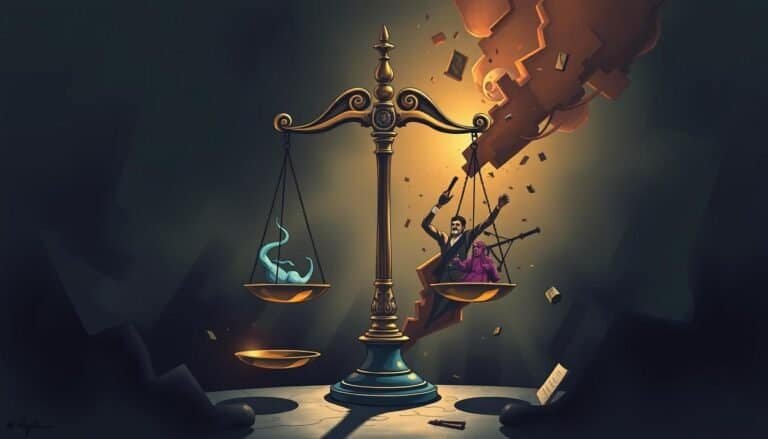Philosophy of Education: Key Theories and Thinkers
Have you ever thought about how our education shapes our lives and societies? The philosophy of education started to grow in the late 20th century. It looks into important theories and thinkers that have changed how we teach around the world. This field touches on ethics, political philosophy, and more, giving us new ways to think about education.
There are many different views on education, like existentialism, pragmatism, and feminism. These ideas help us understand what education should be and how it affects society.
This article will cover key topics like what education is and what it aims to do. We’ll look at formal and informal learning, and how morality and reasoning fit into education. We’ll also see how philosophy helps guide education. Come with us as we explore the philosophies that shape our schools today.
Key Takeaways
- The philosophy of education emerged as a distinct field in the latter half of the 20th century.
- This discipline traverses numerous philosophical areas, including ethics, epistemology, and sociology.
- Different educational philosophies, such as Perennialism and Progressivism, each offer their own unique perspectives.
- The balance of descriptive and normative theories is crucial in shaping educational practices.
- Understanding educational philosophy expands our view beyond traditional schooling to include diverse learning environments.
- Prominent theorists have influenced how education is viewed and practiced throughout history.
Introduction to the Philosophy of Education
The philosophy of education looks into deep questions about how we learn and why. It connects ethics, social ideas, how we know things, and big questions about existence. This helps us see how education changes societies.
It started long ago with thinkers like Socrates. He mixed education with big ideas. Today, we still explore different ways to think about education, like what we learn and why schools matter.
At its heart, the philosophy of education teaches us to think deeply and rationally. It helps students learn to find and judge reasons well. This idea has changed how we teach and learn today.
Education philosophy has grown with new ideas from thinkers like Marx, post-modernists, pragmatists, and feminists. John Dewey was a key figure who believed in learning by doing and asking questions. He said learning should be meaningful and include beauty.
Research now shows that engaging students leads to better learning. Using methods like Dewey’s, students do practical tasks. These tasks boost knowledge, creativity, and thinking skills.
This introduction sets the stage for deeper discussions on education philosophy. As we dive deeper, we’ll see how history and big ideas shape education. This will help us understand education’s key role in making learning effective.
Defining Educational Philosophy
Educational philosophy is a framework that looks at the main ideas and principles of education. It helps educators and students understand the goals of teaching and how to reach those goals. Knowing about educational philosophy is key to creating a strong learning environment. It also helps in making decisions about what to teach and how to teach it.
Understanding Key Concepts in Philosophy of Education
Important ideas in education philosophy include how we see knowledge, ethics, and beliefs. For example, Dan Lortie’s idea from 1975 says that teachers often start with views shaped by their own school days. These views can guide their teaching later on.
- Perennialism focuses on timeless truths and the importance of classical knowledge.
- Essentialism emphasizes core knowledge and skills essential for students’ success.
- Progressivism advocates for experiential learning tailored to student interests.
- Social Reconstructionism encourages education as a catalyst for social change, with thinkers like Paulo Freire championing this approach.
The Importance of Philosophy in Education
Philosophy is key to building a strong base for teaching. It helps teachers choose the best ways to teach and think about ethics in their teaching. By using different educational philosophies, teachers can create places that encourage thinking, creativity, and deep understanding. For instance, John Dewey’s focus on learning by doing shows how important practical experiences are.
Understanding educational philosophy helps teachers deal with the challenges of teaching. It helps them meet the needs of all students and prepare them to think critically and act wisely.
Philosophical Approaches to Education
Understanding the different educational philosophies is key for teachers, policymakers, and others who shape education. Each philosophy brings its own view on how to teach and what to teach. By looking into these philosophies, we see a range of ideas that shape learning in many places.
Overview of Different Educational Philosophies
There are several educational philosophies that guide teachers. These include:
- Essentialism: This approach focuses on teaching basic skills and knowledge in key subjects. It aims to prepare students for their roles in society.
- Perennialism: It seeks to uncover timeless truths in human experience. This helps students tackle today’s problems better.
- Progressivism: This philosophy values learning by doing and growing in all areas of life. It sees solving real-world problems as key to education.
- Social Reconstructionism: It aims to teach democratic values and fight for social justice in schools through critical thinking.
Thinkers like William Bagley and E.D. Hirsch Jr. support essentialism. Robert Hutchins and Mortimer Adler back perennialism. John Dewey and Maria Montessori advocate for progressivism. Paulo Freire and bell hooks push for social reconstructionism in education.
Descriptive vs Normative Theories
In education, knowing the difference between descriptive and normative theories is vital. Descriptive theories study and understand current teaching methods and their effects. They show us what education looks like today, including how it’s not the same for everyone.
Normative theories, however, go further. They talk about what education should be like. They suggest ideals and plans for better education, calling for change based on what society needs and values. Looking at both types of theories helps us see education as a complex mix of ideas.
Key Theories in Philosophy of Education
The study of key theories and thinkers in education shows us the big ideas that guide teaching and learning. These theories help teachers connect with students. They focus on how we learn, grow, and improve society.
Perennialism: Timeless Knowledge
Perennialism believes in the power of knowledge that lasts forever. It says education should focus on ideas that are always important. This way, students learn to think deeply and critically by studying important works.
Essentialism: Emphasis on Core Knowledge
Essentialism says that some knowledge is key to a good education. It suggests a focused curriculum that includes math, history, and science. This approach aims for efficiency and mastery, showing the importance of these subjects.
Progressivism: Learning Through Experience
Progressivism believes in learning by doing. It says education should be based on what students find interesting and meaningful. This method encourages students to ask questions, work together, and think deeply. It prepares them for the real world by making learning fun and engaging.
Reconstructionism: Education as a Tool for Social Change
Reconstructionism sees education as a way to fix social problems and bring about change. It thinks teachers should help students think deeply about social issues. This approach encourages students to take responsibility and get involved in their communities. It sees education as a powerful tool for creating a fairer society.
| Theory | Focus | Key Characteristics |
|---|---|---|
| Perennialism | Timeless Knowledge | Classical texts, critical thinking development |
| Essentialism | Core Knowledge | Structured curriculum, emphasis on fundamental subjects |
| Progressivism | Experiential Learning | Student interests, inquiry-based education |
| Reconstructionism | Social Change | Addressing injustices, promoting societal responsibility |
Philosophy of Education: Key Theories and Thinkers
The philosophy of education covers a broad range of ideas. Many influential thinkers have shaped this field. They offer unique views that affect how we teach and think about education. Their ideas often reflect their time, showing why studying educational philosophy is important today.
Prominent Thinkers in Educational Philosophy
John Dewey and Paulo Freire are key figures in education philosophy. John Dewey believed in learning through experience. He wanted students to be active in their education, valuing individuality, creativity, and teamwork.
Paulo Freire focused on social justice and empowerment in education. He believed in a dialogue-based approach that questions traditional teaching methods. His ideas show how education is shaped by society and history.
Impact of Historical Context on Educational Theories
Looking at educational philosophy history helps us see how society affects education. For example, essentialism, which supports a core curriculum, came up during a key time in U.S. education. It pushed for a system that teaches both knowledge and morals.
In the 18th century, romanticism brought ideas about feeling and personal insight into learning. Jean-Jacques Rousseau and Maria Montessori stressed the need to support students’ unique qualities and spark their imagination.
| Philosophy | Main Focus | Key Figure(s) |
|---|---|---|
| Perennialism | Enduring truths and great ideas | Mortimer Adler |
| Essentialism | Common core of knowledge | William C. Bagley |
| Progressivism | Active learning through experience | John Dewey |
| Reconstructionism | Social reform through education | Paulo Freire |
| Romanticism | Emotional and intuitive learning | Jean-Jacques Rousseau, Maria Montessori |
Major Thinkers in the Philosophy of Education
This section looks at key thinkers who have shaped education philosophy. Each one brings their own ideas to the table, helping us grasp different educational concepts and practices. Their ideas still influence today’s educators and educational systems around the world.
John Dewey: The Father of Progressivism
John Dewey believed in the power of learning by doing. He thought education should be active, not just about memorizing facts. Dewey wanted schools to be like democratic societies, teaching critical thinking.
Paulo Freire: Critical Pedagogy and Social Justice
Paulo Freire’s ideas are still important today for fighting against unfairness in education. He believed in empowering students to question the world. This way, they can tackle challenges and work towards social justice.
Mortimer Adler and Robert Maynard Hutchins: Perennialism Advocates
Mortimer Adler and Robert Maynard Hutchins believed in a deep, focused education. They thought studying classic texts and timeless ideas helps students grow intellectually. This idea is still important today for creating well-rounded thinkers.
| Thinker | Key Contributions | Educational Philosophy |
|---|---|---|
| John Dewey | Experiential learning; democratic education | Progressivism |
| Paulo Freire | Critical pedagogy; social justice | Critical Pedagogy |
| Mortimer Adler | Focus on classic texts; intellectual growth | Perennialism |
| Robert Maynard Hutchins | Emphasis on a liberal education; essential ideas | Perennialism |
Educational Philosophy Principles
Educational philosophy principles are key to teaching and learning. They shape how teachers teach and students learn. These beliefs help make learning more than just sharing facts. They focus on developing critical thinking and moral awareness.
Fundamental Principles Guiding Educational Philosophy
Key educational philosophy principles guide teaching methods and goals. It’s crucial for teachers to know these principles to create a good learning space. Some main principles are:
- Transmission of Knowledge: Sharing important info and skills.
- Critical Thinking Development: Encouraging learners to think and judge info.
- Moral and Ethical Growth: Helping students learn about values and duties.
These principles should match what learners want and what society needs. This balance makes education effective.
The Role of Ethics in Education
Ethics in education helps guide decisions in the classroom and school policies. It makes sure learning respects students’ dignity and rights. Ethics in education means:
- Developing a Safe Learning Environment: Making students feel safe and supported.
- Promoting Fairness and Equity: Fixing issues of unequal access to education.
- Encouraging Social Responsibility: Teaching students to be ethical in their communities.
Combining educational philosophy and ethics makes education respectful and effective. It helps learners and society. These values are key to good teaching and learning.
The Evolution of Educational Philosophy: A Historical Perspective
The journey of educational philosophy is a long and interesting one. It started in the 1500s with thinkers like Martin Luther pushing for universal education. This idea helped make education available to more people.
In the 18th century, Jean Rousseau brought in child-centered learning. He believed in letting children explore and learn through their senses. These ideas were key in shaping today’s education philosophy.
An Overview of Key Historical Developments
Many philosophers have shaped educational philosophy over time. Friedrich Froebel started kindergarten, showing that play is vital for learning. Maria Montessori stressed the role of the senses in early education.
Lev Vygotsky and Jean Piaget also made big impacts. They showed how important social interaction and developmental stages are in learning. Their work changed education from strict to more flexible methods that focus on the learner.
Transition from Traditional to Modern Educational Philosophies
The shift to modern education philosophies brought together different approaches. High/Scope and Waldorf education focus on hands-on learning and self-discovery. In the 20th century, education started to blend with psychology and sociology.
This mix laid the groundwork for today’s teaching methods. Understanding the evolution of educational philosophy helps educators stay up-to-date with debates and innovations. It lets them adjust their teaching to suit today’s learners.
Source Links
- Philosophy of education
- Philosophies and Theories in Education
- Philosophy of Education
- Dewey’s educational philosophy – THE EDUCATION HUB
- Philosophical Foundations of Education
- Philosophy of education | History, Problems, Issues, & Tasks
- John Dewey’s Theory
- 5.3 Philosophical Perspective of Education
- Philosophical Foundations of Education
- 15 Learning Theories in Education (A Complete Summary)
- Learning Theories – StatPearls – NCBI Bookshelf
- Issues in Philosophy of Education | Department of Philosophy | University of Miami
- Educational Philosophers and their Relevance in the 21st Century
- Plato’s Education Philosophy
- Charlotte Mason, the Educational Philosopher • Educational Renaissance
- Five Educational Learning Theories
- Learning Theories: Theories of Learning in Education | NU
- Early Childhood Education History: Theorists & Theories
- Philosophy of Education – HISTORICAL OVERVIEW, CURRENT TRENDS







